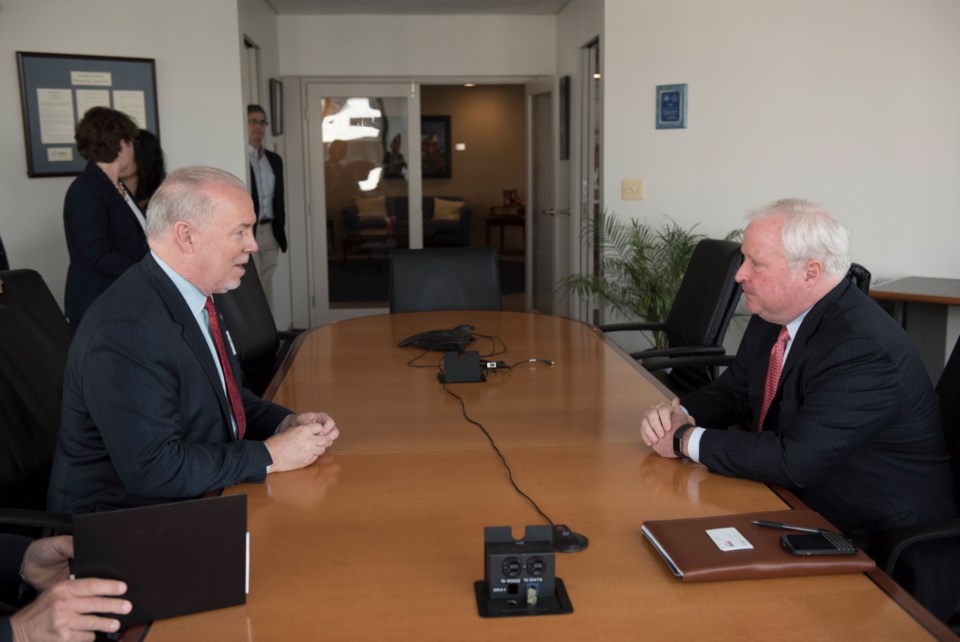The Somass sawmill in Port Alberni is shutting down indefinitely due to a lack of log supply and the ongoing softwood lumber dispute between Canada and the United States, Western Forest Products said Thursday.
The mill had been temporarily closed since February and operated a single shift prior to that, the company said.
“The difficult decision to indefinitely curtail operations is in response to the lack of log supply to operate the mill efficiently, as well as the uncertainty caused by duties recently applied to Canadian softwood lumber products sold into the United States,” the company said in a release.
Western said it will increase production at its other mills on Vancouver Island to make up for the loss of Somass.
Don Demens, president and chief executive officer, was unavailable for an interview, but said in a statement that the company will encourage employees to explore opportunities for employment at Western’s other mills.
The announcement came the same day that Premier John Horgan concluded two days of meetings with top trade officials in the Trump administration in Washington.
Horgan, who briefed reporters by telephone, said Canada is close to reaching a new softwood lumber agreement with the United States despite ongoing opposition from key members of the U.S. Lumber Coalition.
He said Foreign Affairs Minister Chrystia Freeland has had intense negotiations with U.S. Secretary of Commerce Wilbur Ross. “They’re very close to an agreement, but there are challenges with the representatives in the coalition that brought the dispute to a head when the last agreement expired,” he said.
Harry Nelson, an assistant professor in the University of B.C.’s forestry faculty, said he’s skeptical that a deal is close, arguing that the U.S. lumber lobby is likely looking for more restrictions than Canada is willing to accept.
The premier, who met with both Ross and U.S. Trade Representative Robert Lighthizer, said he stressed that B.C. wants a fair deal for its forestry communities and workers.
“As the largest player on the Canadian side in terms of market share, we want to make sure that they understand we are not prepared to give and give and give,” he said. “At some point, we’re going to be saying no, and that was a message that Minister Freeland wanted me to reinforce.”
Horgan also met Thursday with the National Association of Home Builders, which represents the people who build and remodel homes in the U.S. He described the association as one of B.C.’s allies in the ongoing dispute.
“They want to see more B.C. forest products in their marketplace,” he said. “It reduces the cost of construction, which reduces the cost of homes for middle class families. That was a very important meeting to have [with] someone on the consumer side.”



